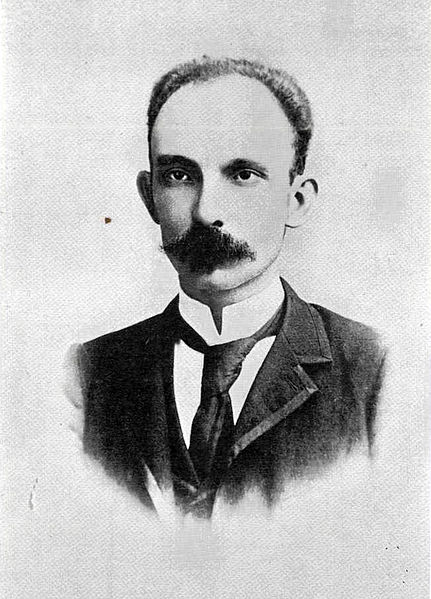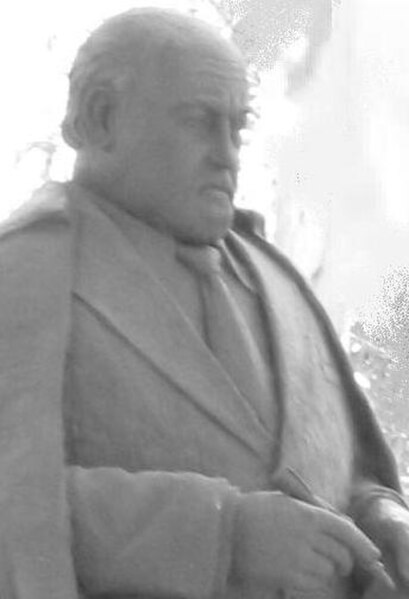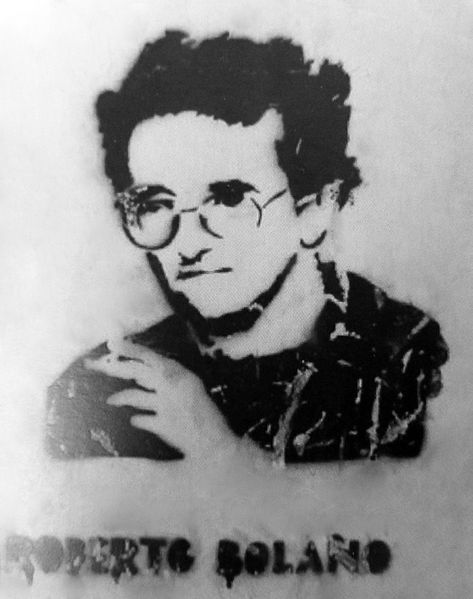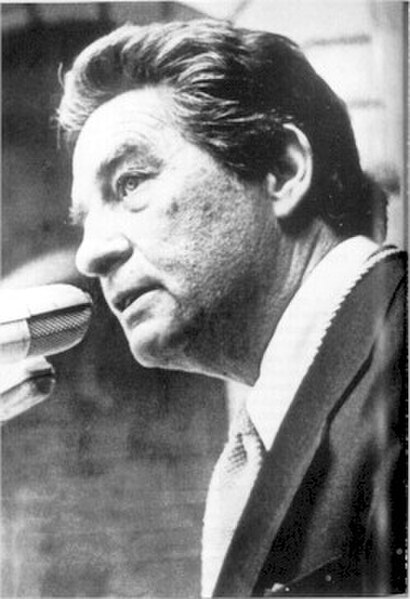José Julián Martí Pérez was a Cuban nationalist, poet, philosopher, essayist, journalist, translator, professor, and publisher, who is considered a Cuban national hero because of his role in the liberation of his country from Spain. He was also an important figure in Latin American literature. He was very politically active and is considered an important philosopher and political theorist. Through his writings and political activity, he became a symbol of Cuba's bid for independence from the Spanish Empire in the 19th century, and is referred to as the "Apostle of Cuban Independence". From adolescence on, he dedicated his life to the promotion of liberty, political independence for Cuba, and intellectual independence for all Spanish Americans; his death was used as a cry for Cuban independence from Spain by both the Cuban revolutionaries and those Cubans previously reluctant to start a revolt.
Martí in 1892
41 Paula Street, Havana, birthplace of José Martí
A sign at the Miracle del Mocadoret square, Valencia (Spain) where José Martí spent his childhood
Statue of José Martí on horseback in New York's Central Park – Anna Hyatt Huntington, 1959
Latin American literature
Latin American literature consists of the oral and written literature of Latin America in several languages, particularly in Spanish, Portuguese, and the indigenous languages of the Americas. It rose to particular prominence globally during the second half of the 20th century, largely due to the international success of the style known as magical realism. As such, the region's literature is often associated solely with this style, with the 20th century literary movement known as Latin American Boom, and with its most famous exponent, Gabriel García Márquez. Latin American literature has a rich and complex tradition of literary production that dates back many centuries.
Gabriel García Márquez, one of the most renowned Latin American writers
Sculpture of Alfonso Reyes writer of influential pieces of Mexican surrealism.
Roberto Bolaño is considered to have had the greatest United States impact of any post-Boom author
Octavio Paz helped to define modern poetry and the Mexican personality.








